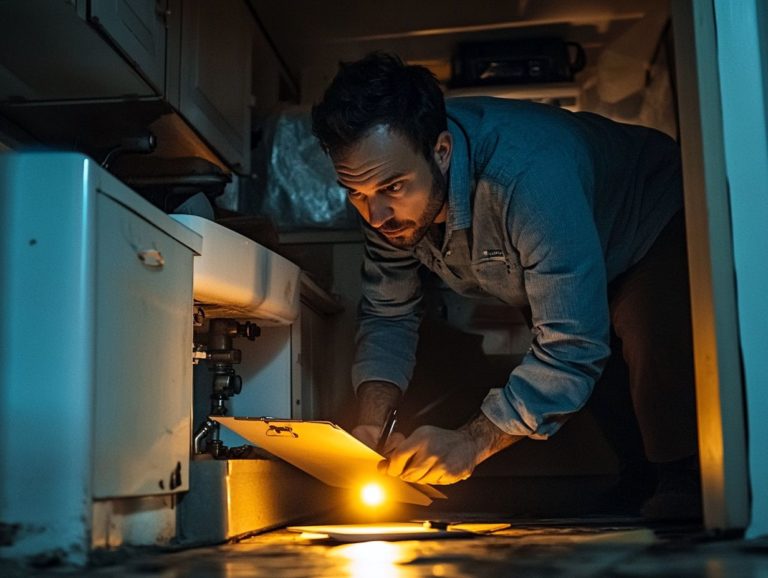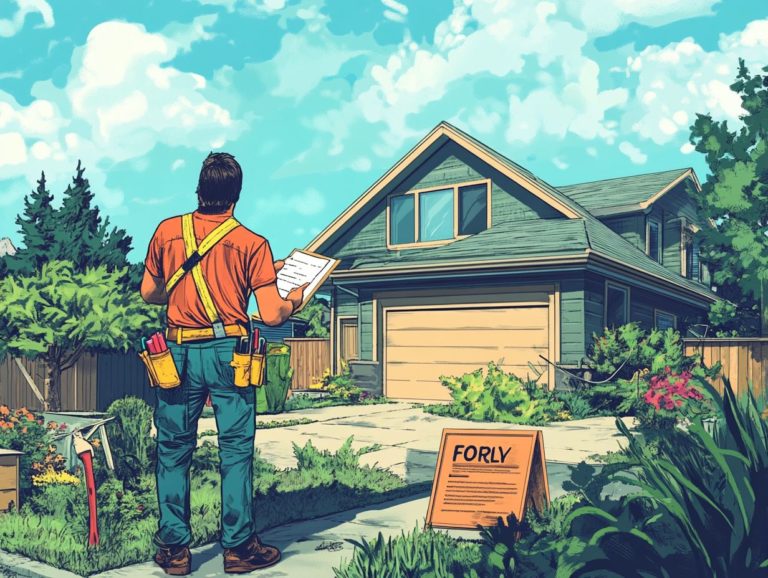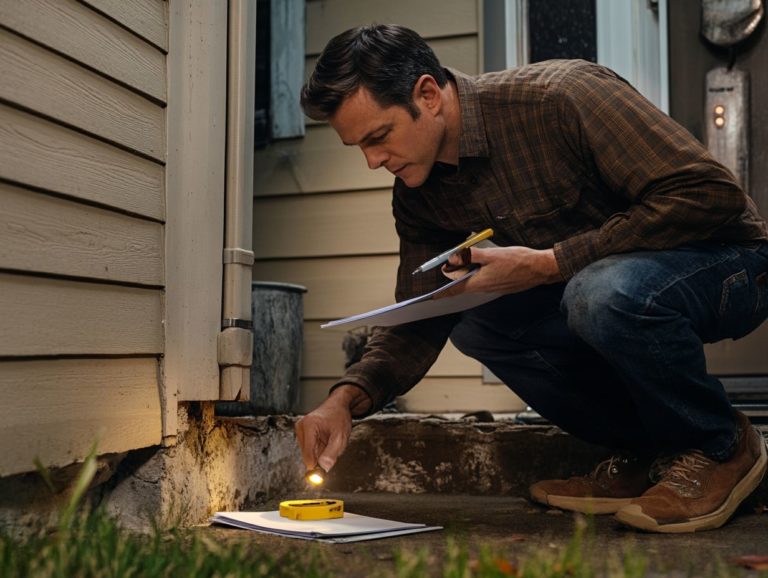Home Inspection Guidelines for Sellers
When you are selling your home, having a solid grasp of the inspection process can make a huge difference!
Home inspections may seem intimidating at first, but they are an essential part of the journey that can significantly enhance your selling experience. This article will walk you through key steps, including the benefits of conducting a pre-listing inspection and how to prep your property for a thorough evaluation.
You will discover common issues to be on the lookout for, effective strategies for repairs, and tips for navigating negotiations after the inspection. Prepare yourself to ensure a seamless closing process and unlock your home s full potential in the market!
Contents
Key Takeaways:

- Conducting a pre-listing home inspection can help sellers identify potential issues before listing their home and increase the chances of a smooth closing process.
- Properly preparing for a home inspection, including addressing any known issues and making necessary repairs, can help sellers avoid potential negotiations and delays during the closing process.
- When negotiating after a home inspection, sellers should carefully consider requests from buyers and prioritize repairs that may affect the safety and functionality of the home.
Why Home Inspections Are Important for Sellers
Home inspections play a very important role in the real estate process, especially if you are a seller aiming to make your property irresistible to potential buyers while avoiding any serious issues down the line. Understanding the benefits of a home inspection before selling can significantly enhance your selling strategy.
By choosing to undergo a thorough property inspection before listing, you position yourself to provide a detailed home inspection tips for first-time buyers report that outlines the condition of vital components such as the structure, electrical systems, plumbing, and heating, ventilation, and air conditioning (HVAC) systems.
This proactive strategy not only uncovers common concerns like foundation cracks and mold but also affords you peace of mind.
In a competitive Arizona housing market, where buyers tend to be discerning, this approach can give you a significant edge.
The Benefits of a Pre-Listing Inspection
A pre-listing inspection offers you significant advantages, allowing you to identify and tackle serious issues before listing your home. This proactive step can pave the way for a smoother transaction process.
By uncovering hidden problems early, you can make the necessary repairs and avoid any unpleasant surprises during the buyer’s inspection surprises that might otherwise jeopardize your sale.
This approach enables you to set a more realistic price based on the actual condition of your property, ultimately leading to more effective negotiations. You can manage repairs at your own pace, free from the urgency that comes with a pending sale.
A detailed home inspection report not only demonstrates transparency but also builds buyer confidence, ensuring that potential buyers feel secure in making their investment decision.
Preparing for a Home Inspection
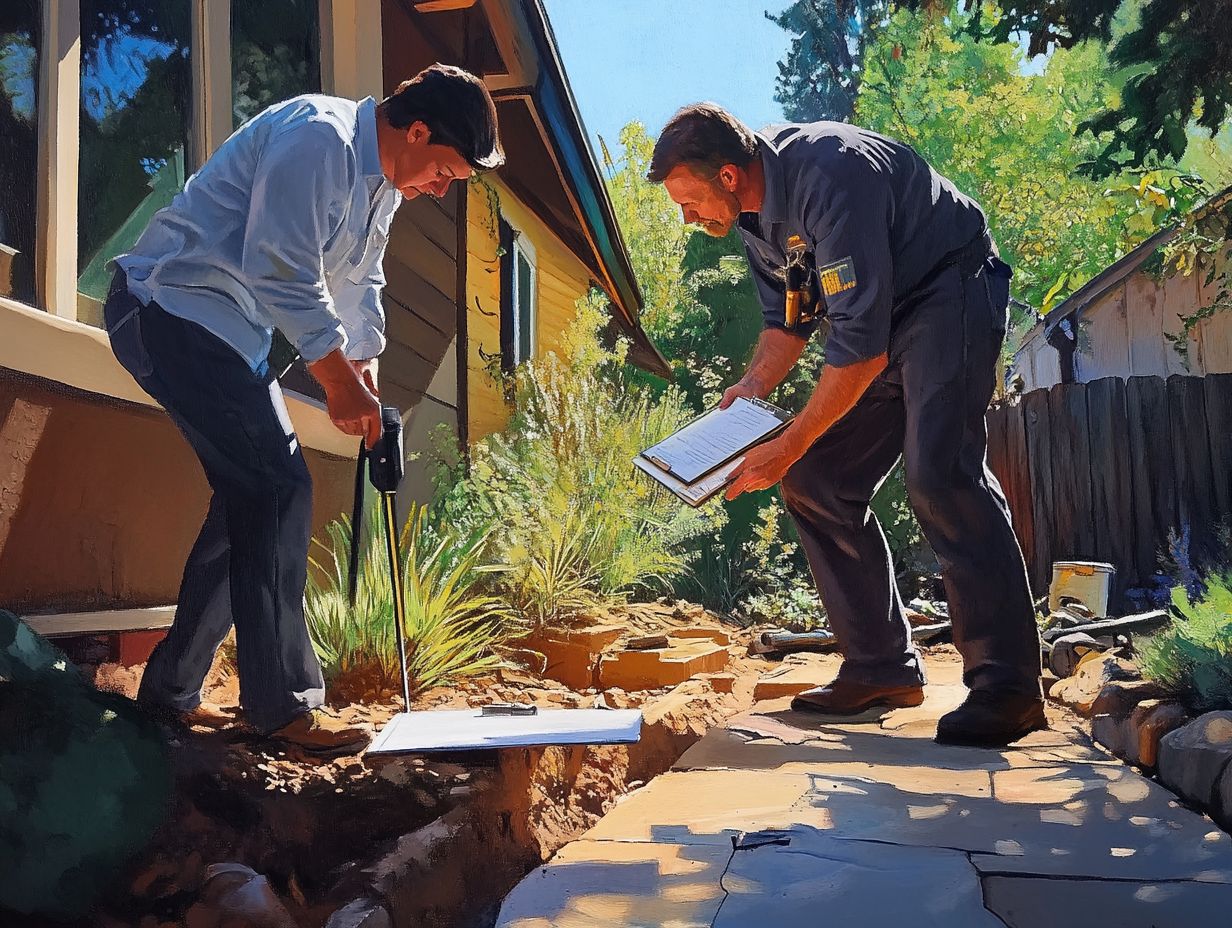
Preparing for a home inspection is an essential step in your home selling journey. It lays the groundwork for a successful inspection day, instilling confidence in potential buyers regarding the property’s condition. Understanding the benefits of home inspections for sellers can also help minimize the likelihood of any missteps during the inspection process.
Steps to Take Before the Inspection
- Address any serious problems and common issues that could impact the outcome.
- Declutter your spaces to create a welcoming atmosphere, showing potential buyers that your home is well-loved and cared for.
- Tackle minor repairs, like fixing leaky faucets, replacing worn-out light bulbs, or touching up paint, to significantly enhance those all-important first impressions.
- Ensure that essential systems, particularly HVAC and plumbing, are functioning flawlessly.
- Potential buyers will appreciate a home that requires minimal immediate upkeep.
- Presenting a well-maintained residence boosts its marketability and instills confidence in buyers, helping them envision a seamless transition into their future home.
Common Issues Found During Home Inspections
During a home inspection, you may encounter a range of common issues that can arise, from structural components and foundation concerns to plumbing and electrical system problems. Each of these factors can significantly influence your home buying experience, making it essential to remain vigilant throughout the inspection process.
Identifying and Addressing Potential Problems
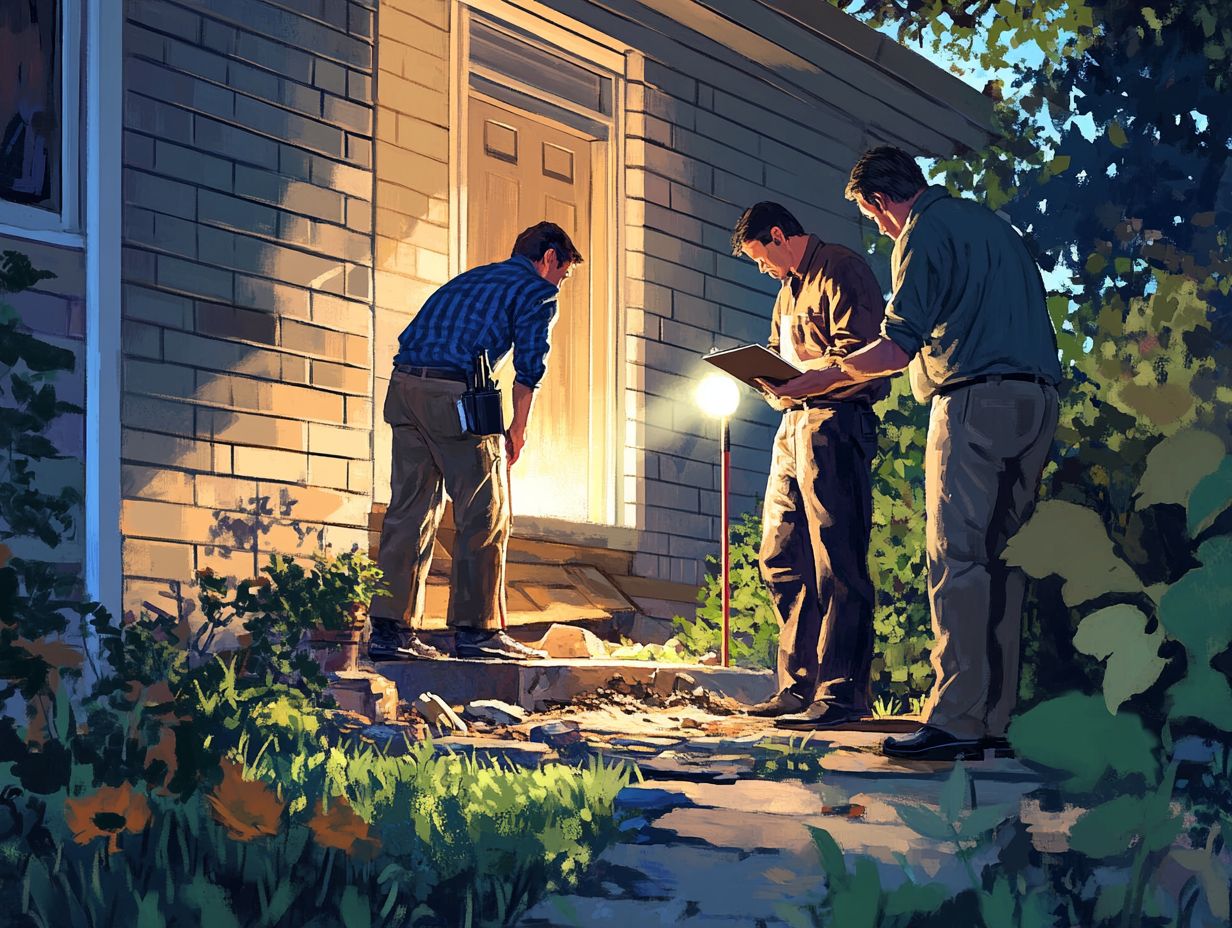
Identifying and addressing potential problems during a home inspection is essential for you as a seller. Understanding the value of home inspections for home sellers can prevent serious issues from causing problems with your sale and might even allow you to make necessary repairs before listing your property.
By taking proactive steps, such as scheduling a pre-inspection, you can uncover hidden flaws that may otherwise turn off potential buyers. Common issues often include:
- Outdated appliances
- Signs of water damage
- Electrical problems
Tackling these matters early can significantly boost your property’s overall appeal. Simple fixes like replacing broken tiles or repainting scuffed walls can create a more inviting atmosphere and spark buyer interest. Being open about repairs can build trust with buyers, simplifying negotiations and leading to a smoother transaction overall.
How to Make Repairs and Improvements
Making repairs and improvements to your home before a sale can significantly enhance its marketability and value. By addressing common issues, you can eliminate potential red flags that might deter buyers during the home inspection process.
Best Practices for Fixing Issues
To effectively address issues discovered during a home inspection, you should adhere to best practices that not only resolve common problems but also ensure your property aligns with buyer expectations.
By proactively tackling repairs, you can significantly enhance your home’s overall appeal, making it more enticing to potential buyers. Engaging licensed professionals for major repairs is essential, as their expertise can help you avoid future complications and elevate the quality of work.
Obtaining a home warranty, which is a plan that covers certain repairs for a set time, can provide peace of mind for both you and the buyer.
Addressing these issues quickly can make a big difference in your sale! Prioritizing essential repairs such as fixing plumbing leaks, addressing electrical concerns, and ensuring the roof is in excellent condition will result in a more favorable home inspection report, ultimately leading to a smoother transaction process.
Negotiating After the Inspection

Negotiating after a home inspection can be a defining moment in the selling process. You ll need to balance the repair requests from potential buyers with any serious issues that may have come to light during the inspection.
It s important to be smart and careful at this stage, ensuring that you address concerns while also protecting your interests.
Handling Repair Requests from Buyers
Handling repair requests from buyers after a home inspection demands your strategic communication and negotiation skills to ensure a mutually beneficial outcome. When faced with these requests, you should first assess the significance of the issues raised and their overall impact on the sale.
For minor repairs, simply agreeing to address them can alleviate buyer concerns and build trust. However, for more substantial fixes, you might find it advantageous to negotiate pricing or offer credits instead of taking on the repairs yourself. This approach not only helps you maintain your budget but also gives the power to the buyer to make choices that best suit their needs.
Your main goal is to keep a positive relationship with potential buyers, fostering an atmosphere of cooperation and understanding throughout the negotiation process.
Final Steps for a Successful Home Inspection
The final steps to ensure a successful home inspection require careful planning and clear communication. By doing so, you can navigate the selling process with confidence, closing the sale effectively while maintaining a robust position in negotiations.
Ensuring a Smooth Closing Process
To ensure a smooth closing process after the inspection, stay engaged throughout the transaction. Use the home inspection report to address any buyer concerns.
Be available for communication. Reach out to buyers and their agents to discuss any emerging issues.
Anticipate potential hurdles. Being prepared to tackle them head-on will help reduce buyer worries and build trust.
Prepare for last-minute negotiations! Know what compromises you might accept to resolve issues quickly.
Maintaining open communication and being proactive creates a smooth experience for everyone. This leads to a successful closing.
Frequently Asked Questions
What are home inspection guidelines for sellers?
Home inspection guidelines for sellers are recommendations to prepare for an inspection. Following how to prepare for a home inspection as a seller ensures the home is in good condition.
Do sellers have to get a home inspection?
Sellers aren’t legally required to get a home inspection, but it’s highly recommended. Understanding the home inspection process for sellers can reveal issues that the seller can fix before listing the home.
How far in advance should sellers schedule a home inspection?
Sellers should schedule an inspection at least 2-3 weeks before their planned listing date. This allows time for any necessary repairs and ensures you have the essential checklist for home inspections in hand.
What should sellers do to prepare for a home inspection?
Sellers should declutter and clean the home. Make necessary repairs and ensure all areas, like the attic and basement, are accessible.
Can sellers attend the home inspection?
Yes, sellers can usually attend the inspection. This allows them to ask questions and address concerns.
What happens if issues are found during the home inspection?
If issues are found, sellers have options. They can make repairs, negotiate the price with the buyer, or sell the home as-is with full disclosure.
Start your home inspection journey today for peace of mind!

